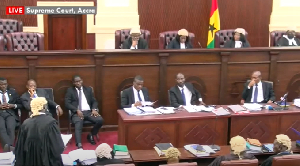Opinions of Friday, 8 July 2016
Columnist: Zuurah Karungi
Debate: Separating bright from the dull in schools
Separating learners according to their academic capability, what we call “ability grouping”, is a matter of debate.
To some teachers, this is an opportunity they get to help and give some extra attention to students who take some time to grasp ideas or now termed as “time takers”.
But most parents are against this grouping theory, saying a child becomes reluctant and gets psychologically affected.
Parents also argue that streaming helps the bright learners but not the time takers and also lowers competition and motivation among learners.
“Once two slow learners are put together, they won’t have motivation but if there is mixed ability, the exposure to a bright student will make the time takers struggle to be like them, ” Sarah Kawidi a mother of two, says.
On the contrary, Nelson Kajura a primary teacher at Buhinga Primary School, Fort Portal, says streaming is good because the time takers are given attention by the teacher which may not be the case if they are mixed with the fast learners.
“Once learners of the same academic capability are put together, you teach them depending on how fast they understand. When you are in the class of slow graspers, you have to teach a concept, explain it several times and in the simplest form until they understood. This will not happen if they are mixed with the fast learners because they understand quickly and this will leave those who take time lagging behind,” he adds.
Sharifah Kakyo, a university student, says she does not support streaming because she was a victim. As a result, she was not motivated to read because she believed she was a dull pupil.
Benard Wanyama, a secondary school teacher, says learners get a chance to compete fairly in class once they are mixed hence improving in ability and performance in class.
He also says streaming demotivates some students and impacts negatively on learners’ attitude towards school.
Expert take
Chris Ahebwa, a university lecturer, says streaming is good for learners as long as it aims at using appropriate teaching aids, methods and time so that they can compete fairly in the same assessment (exams or tests). He says it should not be for the purpose of separating fast learners from average students.
“Streaming should also be done in such a way that learners do not feel stratified, for example, instead of A, B and C streams where A is assumed to be the best and C the worst, one could use colours, or compass point.
Why it’s ideal
Ahebwa says a teacher is able to set a suitable pace at which to teach the learners and there is no possibility of leaving anyone behind since the low ability class normally has fewer learners.
He adds that with this setup, students are able to motivate each other since they have similar abilities.
The teacher realises the learner’s individual needs.
Disadvantages
However, as Ahebwa points out, teachers may concentrate on the high ability students because they are easy to teach and give less time to the low ability learners, which may make them perform worse.
Streaming influences self-esteem in children, hence causing them to lose their other abilities, motivation and achievements.
High ability students benefit than low learners because they get good discussions and various ideas.
The low ability students are denied a chance and motivation from the high ability counterparts hence low motivation and academic models.
Streaming is more of discrimination, whereby the students are discriminated according to their academic abilities.
Counsellor’s perspective
Margret Tumusiime, a counsellor and teacher at Maryland High School, says streaming is a bad practice because students get psychologically tortured and are demotivated on matters concerning school.
“Streaming will traumatise students and this will inadvertently lead to bad performance.”
Lastly, she advises teachers and parents to support children in other fields they are talented in, for example, music, football and the like since everyone has a particular thing they are good at.













